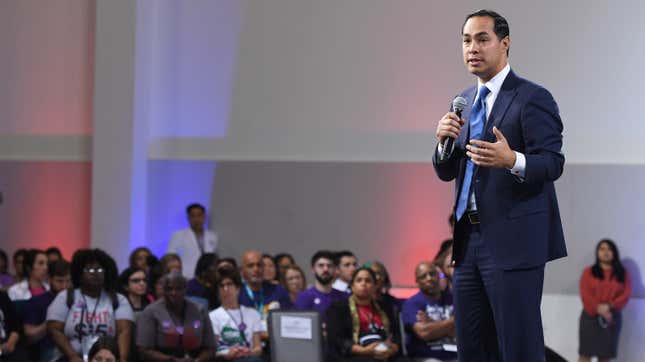'We’re Conditioned to a Certain Level of Inauthenticity': Maya Rupert on Navigating the Very White World of Presidential Politics
Politics

Maya Rupert, who runs former Secretary of Housing and Urban Development Julián Castro’s presidential campaign, is only the third black woman in United States history to run a presidential campaign. And while the 2020 Democratic field is already crowded, the (albeit very, very early) frontrunners are once again a cluster of white men. Castro, who was once a rising star in the party, is now far behind in the pack. In a candid conversation about race and navigating the largely white world of presidential politics with the New York Times, Rupert addresses the specific challenges that candidates of color face that white candidates don’t. While her response is specific to Castro, her words describe a struggle that is frustratingly common and familiar to any person of color attempting to be their full, authentic self in this country.
“I think the American public metabolizes conversations about race being led by white people differently than they do when those same conversations are being led by people of color. I think there’s greater comfort, in some ways, hearing from a white candidate talking about how we need to confront white nationalism, and there’s discomfort when that same rhetoric comes from a candidate of color,” she says about white supremacy. “We definitely grapple with how can Secretary Castro talk about race and racism in a way that is true to him and his experience, without being resisted in a way that white candidates just don’t have to deal with.”
She continues to describe another insidious effect of racism: “the tough thing about being a person of color in this country, is that one of the first things you learn in order to succeed is that you can’t always be exactly who you are.”
But in politics authenticity is valued—and that’s a lot easier to do when you’re white, especially a white guy. “We’re conditioned to a certain level of inauthenticity,” she says. “And so, to suddenly be told that thing that made it so that you could succeed is now going to become a liability, is challenging.”
“We don’t get the opportunity to just fail up. If you messed up, that could be it. There’s a cruel irony to people of color growing up being told you have to be twice as good to get half as much. It’s so tied up in the way that we understand and perceive professionalism and whiteness as more closely aligned.”
The entire interview is a critical read—you can read it here.